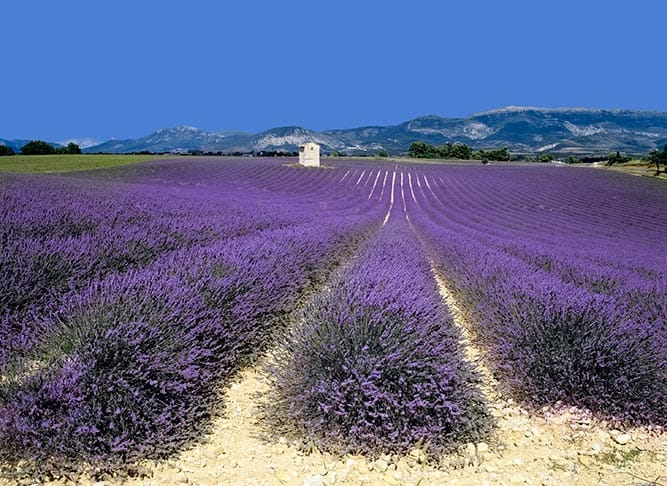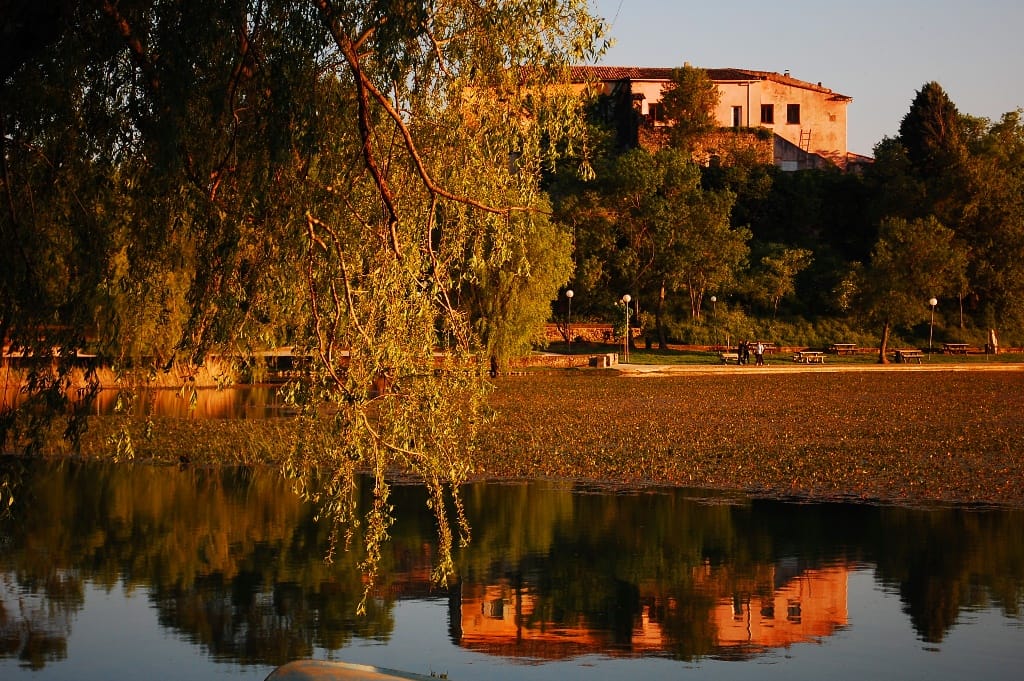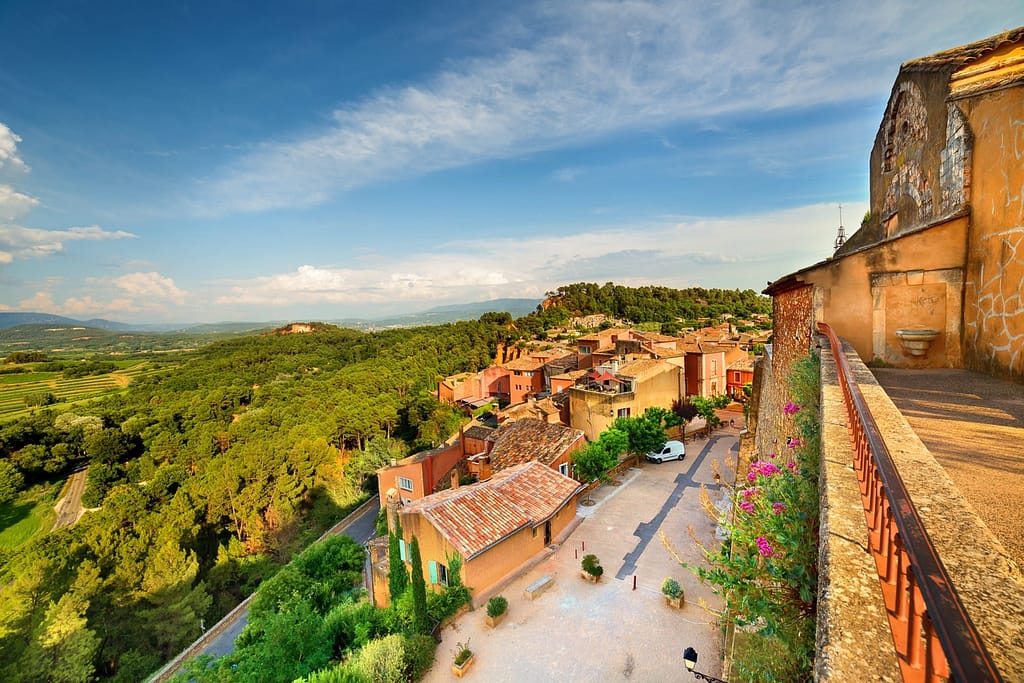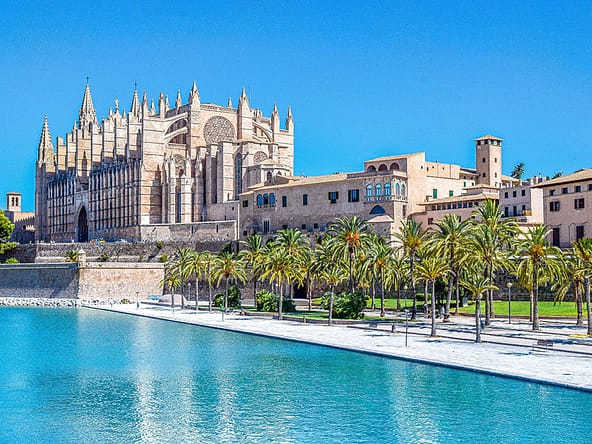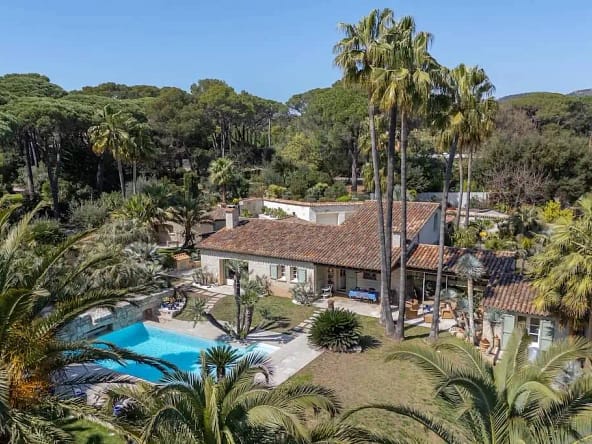Why is Provence a prime location for luxury property buyers? The reasons are practically endless.
Provence has both cultural richness and scenic appeal, reflected in world-renowned events and gastronomy; picturesque villages like Gordes and Ménerbes; and varied scenery, including lavender fields, Mediterranean coastlines, and vineyard estates.
The Mediterranean climate plays into the region’s appealing lifestyle, too — Provence’s relaxed, leisurely pace can be partly attributed to the 300-plus days of sunshine each year.
There’s also exclusivity and prestige that comes with owning a home in Provence, and the region has a longstanding reputation as a safe haven for international wealth and lifestyle-focused investors.
It’s also important to mention that Provence’s infrastructure makes travel to and from the area accessible. Between the Marseille Provence Airport and high-speed trains, you can easily connect to other areas of France or even beyond from your home base in Provence.
Table of Contents
Where is Provence?
Located in southeastern France, along the Mediterranean Sea and the border of Italy, is the Provence-Alpes-Cote d’Azur region. The southern part of the region includes the French Riviera, where you’ll find resort towns like Cannes and Saint-Tropez. While it’s technically divided into six different departments (Bouches-du-Rhone, Var, Alpes-Maritimes, Vaucluse, Alpes-de-Haute-Provence, and Hautes-Alpes), most people consider Provence to take in a smaller area, one that doesn’t include the Hautes Alpes, part of Vaucluse and a small part of Alpes-Maritimes. Regardless of what you do and don’t consider to be Provence, though, most will agree that the Luberon region is at its heart.
The Climate
Provence is a wide-branching region, offering variation in climate and weather based on your specific location.
On average, the temperature stays between 12 degrees Celsius (54 degrees Fahrenheit) and 28.2 degrees Celsius (83 degrees Fahrenheit) from February to August.
Summers are dry while winters are cool and wet. Though snow is not a common occurrence during the winter, temperatures can reach freezing, especially in the Avignon area.
May, June and September are possibly the best months for visiting Provence. You’ll meet the hottest weather in June and July, but it cools down to a lovely temperature in September. The fall sees more rain than the spring.
Reasons Why Provence is a Good Place to Live for International Buyers
Those who make the move to Provence say that it doesn’t feel like starting a new life from scratch. One of the first things that people notice is how welcoming the area is, especially for newcomers. You don’t need perfect French to get by as there are enough English-speaking people and professions around that you can ease in without feeling overwhelmed.
Healthcare is something else that many people worry about, but France handles it well. Once you’re set up with the local system, most medical costs are heavily reimbursed. It’s not something you have to fight for—it’s just part of living here.
The lifestyle is another reason that attracts people to Provence – the food, the markets, the long lunches, the festivals – aren’t just for visitors. If you’re living here full-time, you’re part of it. There’s always something going on, whether it’s a wine harvest, an open-air concert, or a quiet weekday at the local café.
And if you’re wondering whether you’ll meet people, you will. Some areas have long-established international communities, especially in towns like Aix-en-Provence or Saint-Rémy. It’s the kind of place where neighbours still stop to chat and where it’s normal to run into someone you know at the bakery. There’s comfort in that, especially if you’re settling in from somewhere else.
Where Are the Best Places To Buy Property in Provence?
Known for its urban luxury, Aix-en-Provence is the cultural capital of Provence, and it’s also where you’ll find well-known international schools, such as the International Bilingual School (IBS) of Provence. Haussmann-style townhouses are commonly found here, and the area is especially popular with families looking to permanently relocate.
In the mountain range of the Alpilles, communes like Les Baux-de-Provence and Saint-Rémy-de-Provence have luxury estates with equestrian facilities and panoramic views. Price growth is strong in the Alpilles, with high demand and limited inventory.
The UNESCO-protected hilltop villages of the Luberon — including Gordes and Lourmarin — are among the best places in Provence to buy a home. The most common property type here is a traditional mas, and yours can have modern upgrades, an inviting pool, and possibly even olive groves. Property in Luberon sees strong rental yields and growth in value.
There are also emerging areas in Provence to consider, notably Manosque and South Luberon. These areas offer affordable entry points as well as the potential for appreciation in the future.
What Types of Luxury Properties Are Available in Provence?
Provence is home to a number of authentic stone farmhouses, called mas, with beautifully landscaped grounds. These renovated homes date back to the 16th to 18th centuries, and many of them have retained their period features.
You’ll also find bastides and chateaux in Provence. These historic estates typically have sprawling grounds with formal gardens or olive groves to tend to.
If you’re looking for a contemporary home, search for a modern villa with smart home features, a spa, and an infinity pool. You’ll have the best chance of finding this type of property in Maussane-les-Alpilles.
To combine your new home with investment potential or to indulge a hobby you’ve always wanted to dive into, consider a vineyard estate. Producing wine can open up doors to all sorts of income streams, and you can cater to locals as well as tourists.
What Legal and Financial Considerations Should You Be Aware Of?
Next, let’s discuss the legal and financial elements of buying property in Provence, including the beginning-to-end purchasing process, taxes, fees, and more.
The Buying Process
Once you’ve found a home in Provence and have made an offer that the seller has accepted, you’ll both sign the preliminary contract, called the compromis de vente. You’ll also pay the deposit at this time, which can range from 10% to 30%, depending on the type of mortgage you take out.
There’s a 10-day cooling-off period that follows. During this time span, you can change your mind about buying the property without losing your deposit.
If you move forward with the purchase, the notaire will begin the conveyancing process, which takes a few weeks to complete. This is when due diligence will take place, such as different types of home inspections.
Once that’s finished, the notaire will draw up the final contract, called the acte de vente. Once both parties sign the contract and the balance of the home is paid, the home will be officially yours.
Note that throughout the entire buying process, the notaire will ensure that money transfers remain secure.
Financing Your Home in France
Typically, non-residents buying a home in France will secure a mortgage with a loan-to-value (LTV) ratio of 70% to 80%. That means that the rest of the amount due will be paid as the deposit.
It’s also important to know that while fixed-rate mortgages are available to non-residents buying French property, approval can take up to 14 weeks.
Moreover, it’s wise to work with a financial professional who can advise you about currency hedging strategies to minimise the risk of fluctuating exchange rates and volatility of the euro. For example, you may decide to secure a forward contract, which will let you lock in a favorable exchange rate for the entire property buying process.
Taxes and Fees
Taxes to consider when buying property in Provence include:
- Taxe d’Habitation: This is an annual residence tax paid by the property’s occupier if they were a resident on January 1 of that year.
- Taxe Foncière: This is an annual property tax paid by the owner, whether or not the owner or a renter is occupying the property.
- Wealth Tax: France’s real estate wealth tax, also referred to as IFI, applies to those whose real estate assets exceed €1.3 million. There are six tax brackets, with the highest one at 1.5%.
Additionally, notaire and transaction fees generally cost 7% to 10% of the purchase price.
Inheritance Law
While the specifics are complex, in general, France’s inheritance laws make it difficult for French property owners to decide who gets their assets when they pass away. Often, the property owner’s adopted or biological children are entitled to half or more of the assets, according to French law.
There are also ownership structures to learn about before buying French property, especially for the sake of mitigating inheritance issues.
For example, a tontine clause says that if more than one person buys a property, ownership defers to the survivors if one of the owners passes away. There’s no official transfer required; it’s automatic. Moreover, once there’s only one survivor who owns the property, they’re thought of as the sole owner of the home since the time of purchase.
For two or more people buying property together, a Société Civile Immobilière (SCI) may also be recommended. SCIs hold and manage real estate when there are two or more partners involved. The purpose of an SCI is to simplify the management of a joint property, and it can also have tax advantages for the owners.
How Can You Maximise Your Investment in Provence Real Estate?
Meeting energy-efficiency standards can help you maximise your investment in French real estate. Moreover, making eco-friendly updates can increase long-term resale and rental value, as many buyers and renters prefer to live in a home that’s environmentally friendly and will reduce their expenses.
The MaPrimeRénov’ government financial aid program is intended for homeowners who are making energy-efficient renovations. The program can cover the costs of certain upgrades, such as replacing heating systems or improving ventilation systems. The amount of aid that a homeowner will be given is based on the household income and the type of work that’s planned.
France also has an energy-saving subsidies program, called Certificats d’Économies d’Énergie (CEE). French energy suppliers have to meet specific energy targets that are set by the government. Otherwise, they can face penalties. One of the ways they meet their targets is by offering subsidies to homeowners who make improvements to their properties that reduce energy consumption.
Final Thoughts: Why Now Is a Good Time to Invest in Provence
Provence is a resilient and appreciating market for luxury real estate, and the area’s profound lifestyle appeal only adds to its ever-increasing popularity. Infrastructure improvements, such as the high-speed rail project called LGV PACA, along with cultural momentum, have only added to the demand for property in Provence.
With its mix of investment potential, lifestyle, and legacy, Provence is a uniquely attractive destination for high-net-worth overseas buyers looking for their next home.
Consider working with bilingual professionals, including property agents and notaires, so that you’ll understand each step of the process, particularly due diligence and complying with local regulations.
HOMEHUNTS property agents are able to select beautiful, luxury Provence property based on your specific search criteria. Speak directly to one of our property consultants by calling +33 (0)970 44 66 43.

